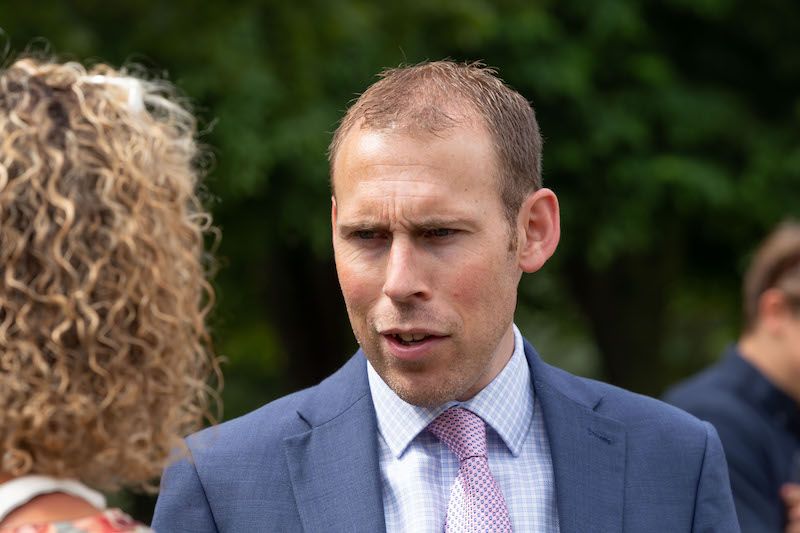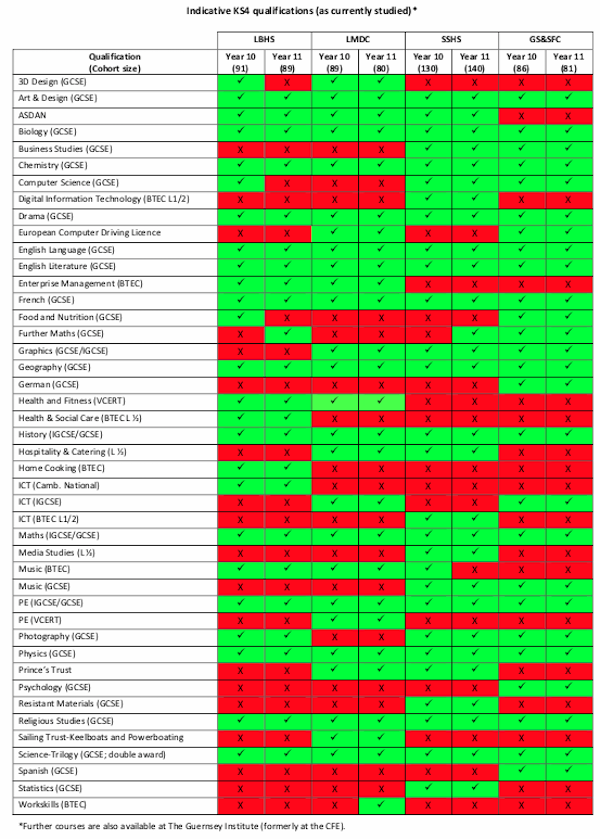

Only the proposed 'two school' model could fix the "unacceptable" level of inequality across local secondary schools, according to the President of ESC.
The committee has published a table, showing how the GCSE offering varies over the current four sites.
It says the inequalities are partly leftover from selective education, but also the result of maintaining small schools.
"The lack of parity across our schools is simply unacceptable and there is nothing we can do about it unless we press ahead with our current reforms to create larger year groups and larger schools with larger and more resilient teams of staff across all subjects," said ESC President, Deputy Matt Fallaize.

Pictured: ESC's table on GCSE offerings across the schools.
"Through no fault of the schools or their staff, we simply cannot offer the same breadth of curriculum at Key Stage 4 in small schools."
The committee pointed out that, at the moment, French is the only language offered at GCSE level at La Mare and Beaucamps, while students at St Sampson's and the Grammar School have more options. Psychology is now only available at Grammar, and Computer Science GCSE can be studied at St Sampson's and the Grammar, but only in one year group at Les Beaucamps and not at La Mare.
"We effectively have a postcode lottery," Deputy Fallaize added. "It cannot be acceptable that a 15-year-old who lives in one part of the island has totally different opportunities at school to his or her counterpart in another part of the island who shares the same subject interests and aptitude.
"When we talk about ensuring all Lisia School students have equality of opportunity in both of the 11-18 colleges, we are referring to various elements of the school experience, such as access to the same high quality facilities and extracurricular activities, but a primary focus is on giving all students equal opportunity to study the full range of subjects on offer at Key Stage 4.

Pictured: ESC says its concerned about inequality when it comes to exam options (file image).
"Unless we press ahead with our current reforms on their current timetable, we will have students in all-ability year groups faced with unfair and unnecessary restrictions when they choose their Key Stage 4 subjects."
Currently, Science GCSEs are offered in a range of different ways across the four schools, with students at the Grammar School having the chance to study three separate science qualifications with different teachers, while some St Sampson's students have left school with just one science qualification.
There are also differences in the course combinations offered by the schools, which ESC again puts down to the small size of the sites and year groups.
"The one school over two colleges model was the best to deliver equality of opportunity and other educational benefits when the States voted for it two years ago," Deputy Fallaize continued. "It remained the best model to deliver those benefits in September 2019 when the assembly voted for it again. The case has not changed since.
"Either we continue with these reforms or we accept that it is reasonable to deny young people opportunities to study a full range of subjects based, not on their interest or aptitude, but only on where they live."
Pictured top: Deputy Matt Fallaize.
Comments
Comments on this story express the views of the commentator only, not Bailiwick Publishing. We are unable to guarantee the accuracy of any of those comments.